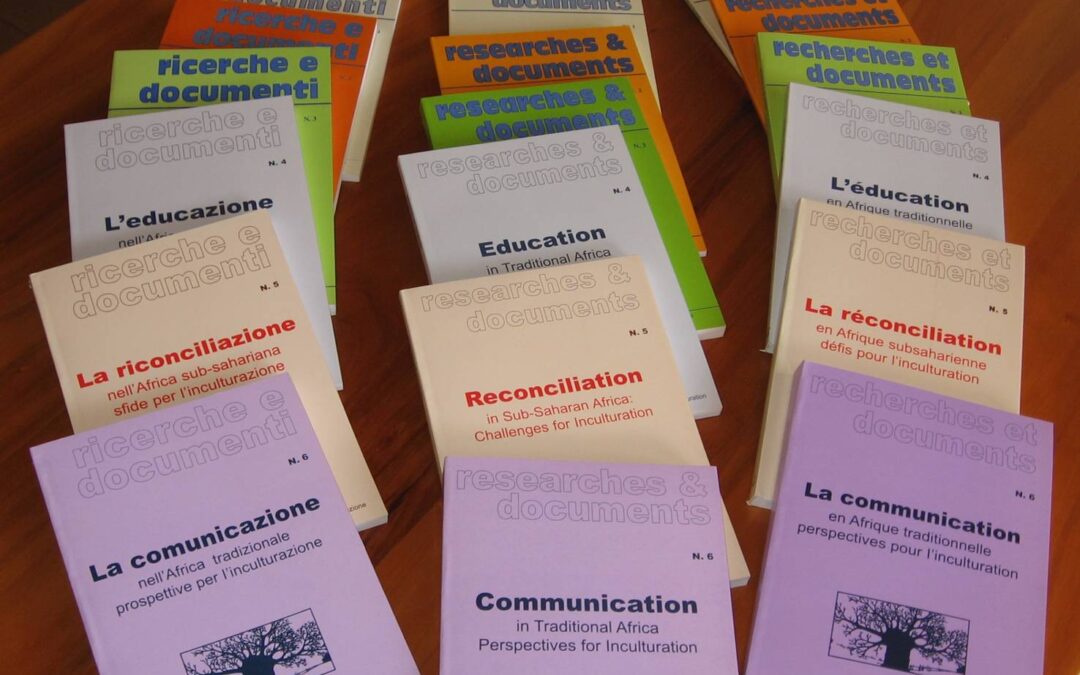
May 17, 2016 | Focolare Worldwide
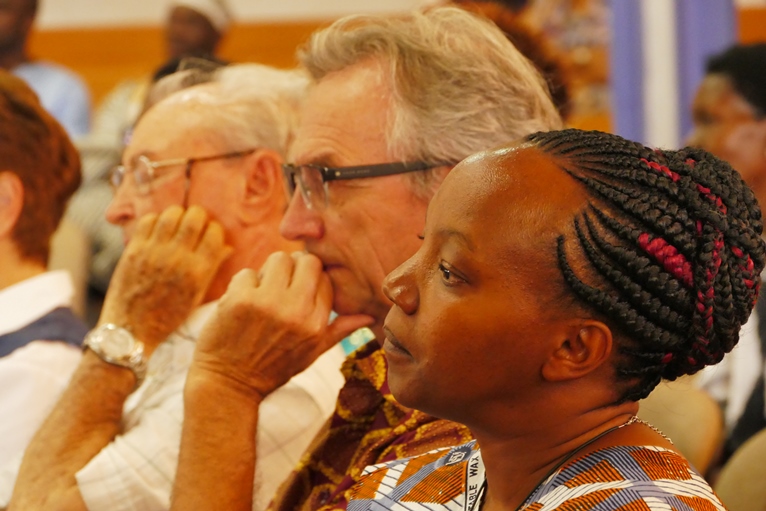
Photo: © Verônica Farias – CSC Audiovisivi
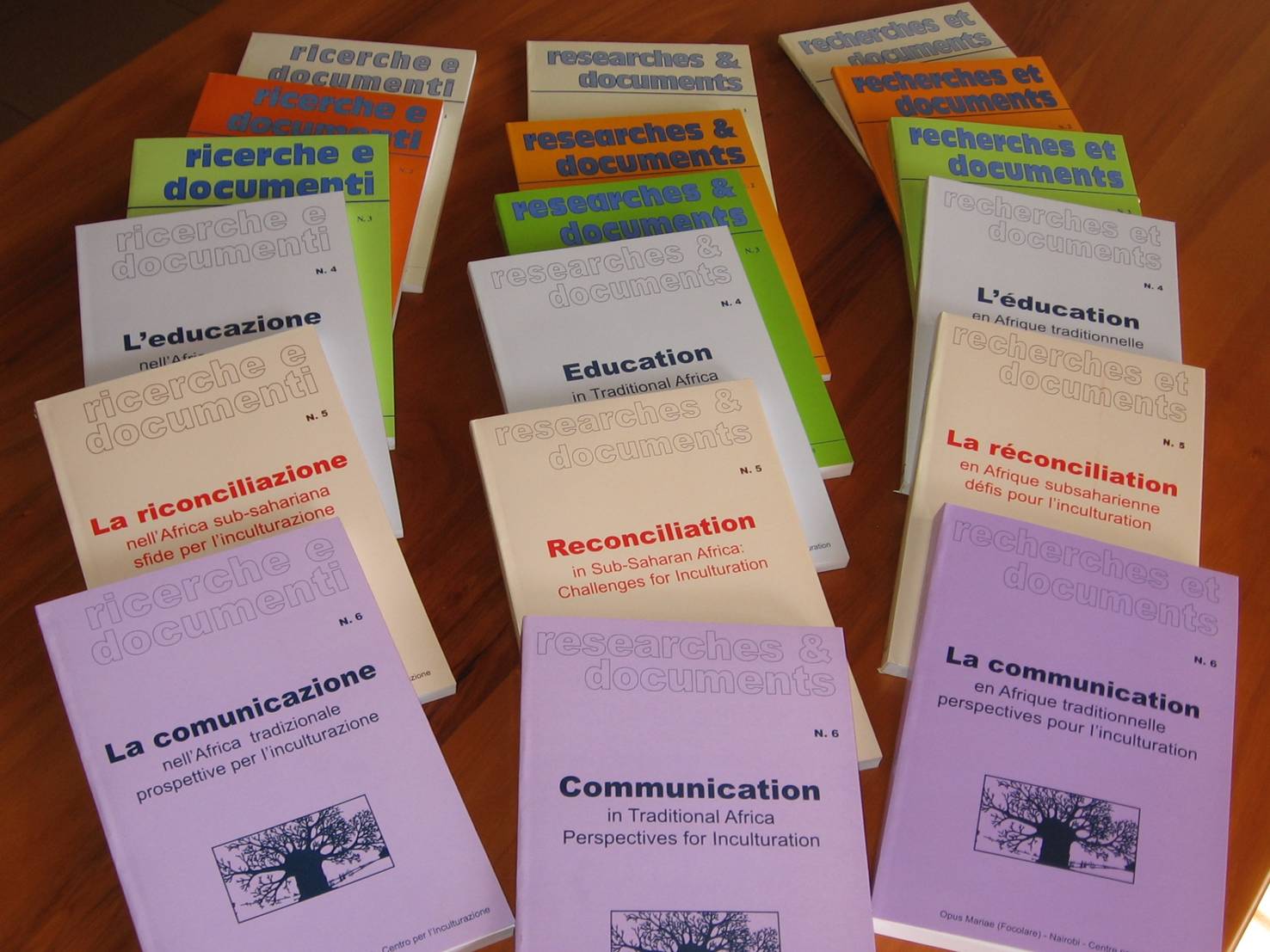 The topics that have been discussed in these years include: private property and work, the sense of the sacred, suffering and death, the reconciliation process, and communication. In 2015, the School focused on the concept of the human person in African cultures. This time we will move on to the intricacy of family relations, aware of the central role that is assigned to the family in African cultures. “We will explore the concept of matrimony in the Tswana, Zulu, Kikuyo cultures, and in cultural groups from Burkina Faso, the Ivory Coast, Congo, Angola, Nigeria, Uganda, Burundi, Cameroon and Madagascar . . . Two guiding principles have been identified: the man-woman role and the institution of marriage as an alliance, and the transmission of values in the family, which is a topic that came into relief during the School on the concept of the human person. Which values? Sharing, hospitality, participation, respect for the elders who are sources of wisdom, willingness to share immediately when necessary.” What significance does the School of Inculturation have? What is its importance for the encounter amongst African cultures, and amongst these and extra-African cultures? Cameroon focolarino and lawyer, Raphael Takougang described it in this way: “In founding the School of Inculturation during her visit to Kenya in 1992, Chiara Lubich touched the soul of the African people. She showed that she understood Africa more than you might think? Her gesture was not a mere formality but the result of a deep love for the people and their cultures that history has not always acknowledged. For more than twenty years African experts, experts on Holy Scripture and of the charism of unity have been working to highlight the “seeds of the Word that are contained in the many different cultures of the continent: first, to shed light on them for Africans themselves so that they might know and appreciate one another better. Then, it is a helping the African people better known abroad, since up until now they have been little known for much beyond famine and war. The cultural patrimony that is gradually being constituted speaks of the presence of God in the daily life of these peoples and could be a significant contribution to dialogue among the peoples of the world that are more and more becoming a “global village”.
The topics that have been discussed in these years include: private property and work, the sense of the sacred, suffering and death, the reconciliation process, and communication. In 2015, the School focused on the concept of the human person in African cultures. This time we will move on to the intricacy of family relations, aware of the central role that is assigned to the family in African cultures. “We will explore the concept of matrimony in the Tswana, Zulu, Kikuyo cultures, and in cultural groups from Burkina Faso, the Ivory Coast, Congo, Angola, Nigeria, Uganda, Burundi, Cameroon and Madagascar . . . Two guiding principles have been identified: the man-woman role and the institution of marriage as an alliance, and the transmission of values in the family, which is a topic that came into relief during the School on the concept of the human person. Which values? Sharing, hospitality, participation, respect for the elders who are sources of wisdom, willingness to share immediately when necessary.” What significance does the School of Inculturation have? What is its importance for the encounter amongst African cultures, and amongst these and extra-African cultures? Cameroon focolarino and lawyer, Raphael Takougang described it in this way: “In founding the School of Inculturation during her visit to Kenya in 1992, Chiara Lubich touched the soul of the African people. She showed that she understood Africa more than you might think? Her gesture was not a mere formality but the result of a deep love for the people and their cultures that history has not always acknowledged. For more than twenty years African experts, experts on Holy Scripture and of the charism of unity have been working to highlight the “seeds of the Word that are contained in the many different cultures of the continent: first, to shed light on them for Africans themselves so that they might know and appreciate one another better. Then, it is a helping the African people better known abroad, since up until now they have been little known for much beyond famine and war. The cultural patrimony that is gradually being constituted speaks of the presence of God in the daily life of these peoples and could be a significant contribution to dialogue among the peoples of the world that are more and more becoming a “global village”.
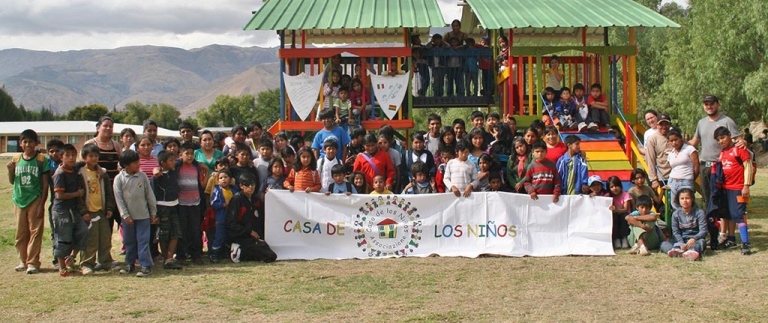
May 16, 2016 | Focolare Worldwide
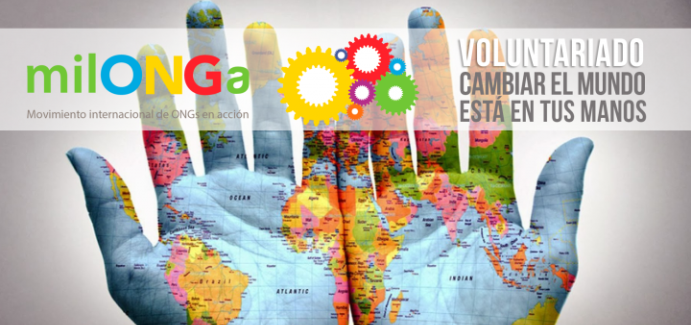 The MilONGa project is the name for a thousand NGOs in action, and offers to young people of 18 and above, the opportunity to practice the role of protagonists in the social work yards of the world’s outskirts. The initiative is promoted by the Focolare Movement in synergy with other humanitarian organisations in the territory. To implement the project, the Focolare in the five continents placed their own facilities and their experience in the field of international relations at the service of the youth, to give them the chance to become promoters of peace and dialogue, in a constant effort to build bridges among individuals, peoples and cultures. Another objective is to develop in the youth those cross-linked competencies that can make them an active part in their own group and be able to influence decision-making processes and lifestyles in their respective social settings. This is a sort of “intercultural volunteer work” which gives the new generations a way of training themselves as protagonists in the change processes, while trying to capitalise on the assets acquired with the implementation of social projects in the world. It is an occasion to learn how to take stock – in the attitude of reciprocity – of the different cultural contexts, put into practice an active citizenship, and develop their own relational and leadership competencies. All of these happen in a continual synergy with the other actors of the project, and not as isolated individuals but in a programme of growth together.
The MilONGa project is the name for a thousand NGOs in action, and offers to young people of 18 and above, the opportunity to practice the role of protagonists in the social work yards of the world’s outskirts. The initiative is promoted by the Focolare Movement in synergy with other humanitarian organisations in the territory. To implement the project, the Focolare in the five continents placed their own facilities and their experience in the field of international relations at the service of the youth, to give them the chance to become promoters of peace and dialogue, in a constant effort to build bridges among individuals, peoples and cultures. Another objective is to develop in the youth those cross-linked competencies that can make them an active part in their own group and be able to influence decision-making processes and lifestyles in their respective social settings. This is a sort of “intercultural volunteer work” which gives the new generations a way of training themselves as protagonists in the change processes, while trying to capitalise on the assets acquired with the implementation of social projects in the world. It is an occasion to learn how to take stock – in the attitude of reciprocity – of the different cultural contexts, put into practice an active citizenship, and develop their own relational and leadership competencies. All of these happen in a continual synergy with the other actors of the project, and not as isolated individuals but in a programme of growth together.  The first phase will provide assignments in the South American and Caribbean countries, to then extend to other areas where there are socially inclusive development activities that can host them, and where the youth may spend periods of one to six months, accompanied by local volunteers and tutors. Consult the portal United World Project to view the localities where volunteer services can be done and download the pdf file for registration. Subsequently, the regional coordinators will contact the subscribers for an interview, and assess with them a personalized proposal which also includes preliminary training (in collaboration with AMU, the Focolare NGO), informal teambuilding and networking activities, and present associations that will host them onsite. Upon reaching the destination, after a brief training period on the local context, the youth will start their established volunteer service, during which they will also be involved in cultural tours, participation in international events and recreational activities. For Europe, the agency in charge of the selection and dispatch of volunteers is New Humanity, for the Spanish-American regions, the Sumá Fraternidad, and for Brazil, Sociedade Movimento dos Focolari. Gustavo Clariá Website Milonga Facebook Info: mariachiarahumura@gmail.com
The first phase will provide assignments in the South American and Caribbean countries, to then extend to other areas where there are socially inclusive development activities that can host them, and where the youth may spend periods of one to six months, accompanied by local volunteers and tutors. Consult the portal United World Project to view the localities where volunteer services can be done and download the pdf file for registration. Subsequently, the regional coordinators will contact the subscribers for an interview, and assess with them a personalized proposal which also includes preliminary training (in collaboration with AMU, the Focolare NGO), informal teambuilding and networking activities, and present associations that will host them onsite. Upon reaching the destination, after a brief training period on the local context, the youth will start their established volunteer service, during which they will also be involved in cultural tours, participation in international events and recreational activities. For Europe, the agency in charge of the selection and dispatch of volunteers is New Humanity, for the Spanish-American regions, the Sumá Fraternidad, and for Brazil, Sociedade Movimento dos Focolari. Gustavo Clariá Website Milonga Facebook Info: mariachiarahumura@gmail.com
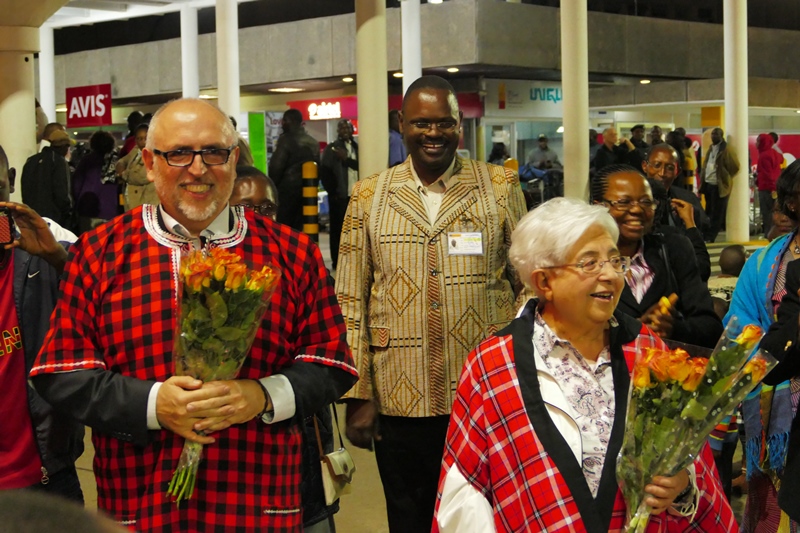
May 14, 2016 | Focolare Worldwide

Arrival at Nairobi airport. Photo © Verônica Farias – CSC Audiovisual
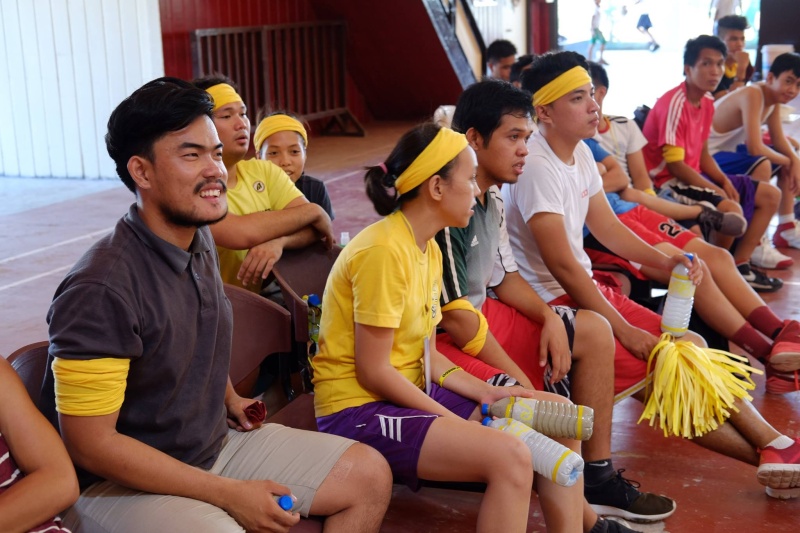
May 13, 2016 | Focolare Worldwide
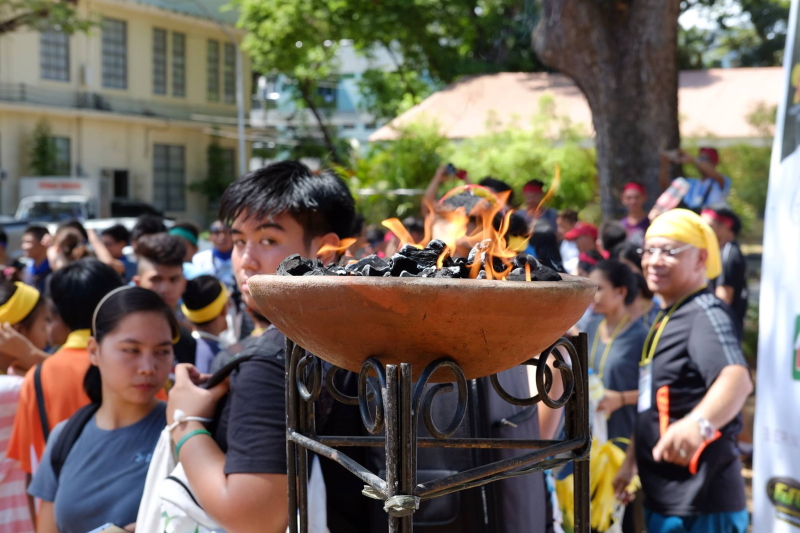 Political involvement in the Philippines, especially among younger age groups, has always been a key issue. Over the years, the Focolare Movement has promoted events that encourage active involvement in the democratic process for the building of a more fair just country. A few days away the from election, on May 12-14, 2016, a Run4Unity event is being held by the young people and teenagers of the Focolare Movement with the stated intention of strengthening ties with society. In the local dialect it is titled “Dula Napud Ta Bai”, which means “Let’s play, friend”, abbreviated “DULA TA Bai”. Joops Miranda, one of the young organizers, writes: “The event is meant to promote awareness of each individual’s ability to become a catalyst of a more united world. It wishes to help strengthen interpersonal relationships and to build new ones. It aims at encouraging dialgogue about current issues amongst young people from different communities, in a setting where they can also have fun! We hope to accomplish this goal through the many sport and recreational activities that will be offered. This underscores our final goal, which is to unite people of different ethnic origins, nationalities and religious beliefs . . . to become a family.”
Political involvement in the Philippines, especially among younger age groups, has always been a key issue. Over the years, the Focolare Movement has promoted events that encourage active involvement in the democratic process for the building of a more fair just country. A few days away the from election, on May 12-14, 2016, a Run4Unity event is being held by the young people and teenagers of the Focolare Movement with the stated intention of strengthening ties with society. In the local dialect it is titled “Dula Napud Ta Bai”, which means “Let’s play, friend”, abbreviated “DULA TA Bai”. Joops Miranda, one of the young organizers, writes: “The event is meant to promote awareness of each individual’s ability to become a catalyst of a more united world. It wishes to help strengthen interpersonal relationships and to build new ones. It aims at encouraging dialgogue about current issues amongst young people from different communities, in a setting where they can also have fun! We hope to accomplish this goal through the many sport and recreational activities that will be offered. This underscores our final goal, which is to unite people of different ethnic origins, nationalities and religious beliefs . . . to become a family.” 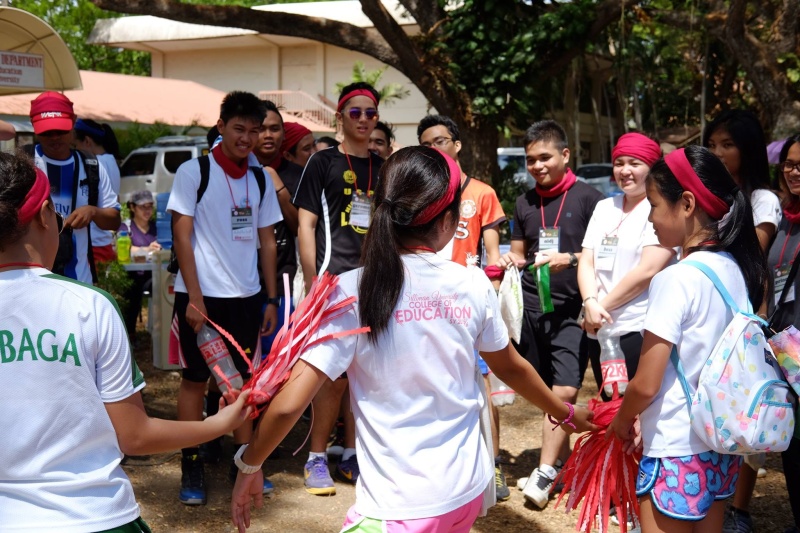 Where did the idea for Dula Ta Bai come from? Joops explains: “In the summer of 2014, we and some friends were wondering how we could avoid wasting another summer sitting in front of a computer screen, playing on our personal tablet. The initial idea came in this way: we were chatting with each other: Why not spend a whole day (which then became three days) doing different physical activities? Things that could be done together, outside in the open, inviting the local community to join us? Two months later there were 200 of us together from several parts of the Philippines. Basketball, volleyball, light exercize, football, frisbee and the ever-popular “Amazing Race” are some of the sport events offered at Dula Ta Bai. Then, the event will conclude with an evening programme called “U-Nite”, with music and story sharing.
Where did the idea for Dula Ta Bai come from? Joops explains: “In the summer of 2014, we and some friends were wondering how we could avoid wasting another summer sitting in front of a computer screen, playing on our personal tablet. The initial idea came in this way: we were chatting with each other: Why not spend a whole day (which then became three days) doing different physical activities? Things that could be done together, outside in the open, inviting the local community to join us? Two months later there were 200 of us together from several parts of the Philippines. Basketball, volleyball, light exercize, football, frisbee and the ever-popular “Amazing Race” are some of the sport events offered at Dula Ta Bai. Then, the event will conclude with an evening programme called “U-Nite”, with music and story sharing.  The young people wondered how they could develop the second event: “The renewal of our way of thinking and doing, also plays a vital part in approaching Jesus’s prayer “that all may be one” (Jn 17:21)” Joop explains. So we left room for the concept of ‘environmental conscience’ (‘Pagkabana Kalikupan’). We’re trying to respond to Pope Francis’s appeal in Laudato Si’ which reminds us of Mother Nature’s cry, and we wanted to help in promoting an itegral ecology. An integral ecology, as the Pope explains, is an ecology that isn’t concentrated only on nature while leaving out humankind and its needs, but rather includes a “human” ecology. Therefore, following this line of thought we hope to convey to the other young people the value of caring for one another (with sport, cultural, musical and artistic activities) and of caring for the environment.” Maria Chiara De Lorenzo
The young people wondered how they could develop the second event: “The renewal of our way of thinking and doing, also plays a vital part in approaching Jesus’s prayer “that all may be one” (Jn 17:21)” Joop explains. So we left room for the concept of ‘environmental conscience’ (‘Pagkabana Kalikupan’). We’re trying to respond to Pope Francis’s appeal in Laudato Si’ which reminds us of Mother Nature’s cry, and we wanted to help in promoting an itegral ecology. An integral ecology, as the Pope explains, is an ecology that isn’t concentrated only on nature while leaving out humankind and its needs, but rather includes a “human” ecology. Therefore, following this line of thought we hope to convey to the other young people the value of caring for one another (with sport, cultural, musical and artistic activities) and of caring for the environment.” Maria Chiara De Lorenzo
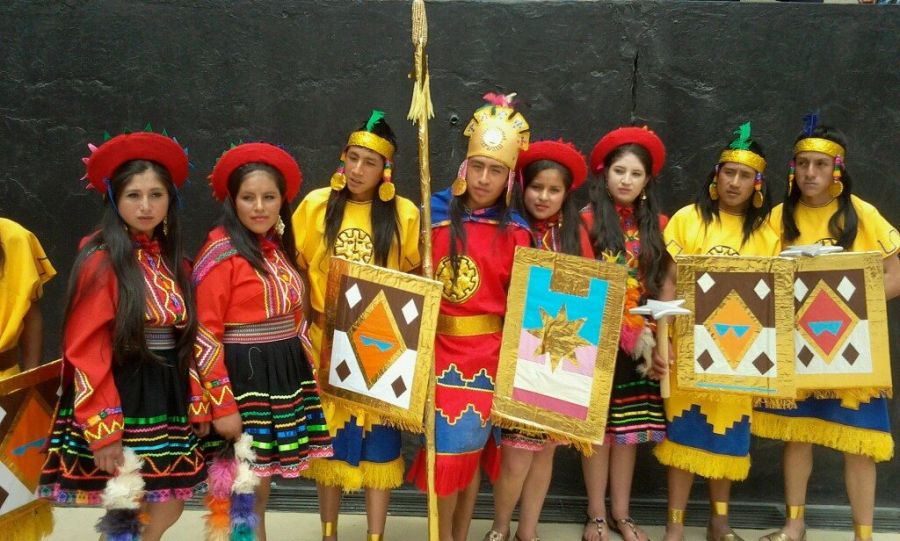
May 12, 2016 | Focolare Worldwide
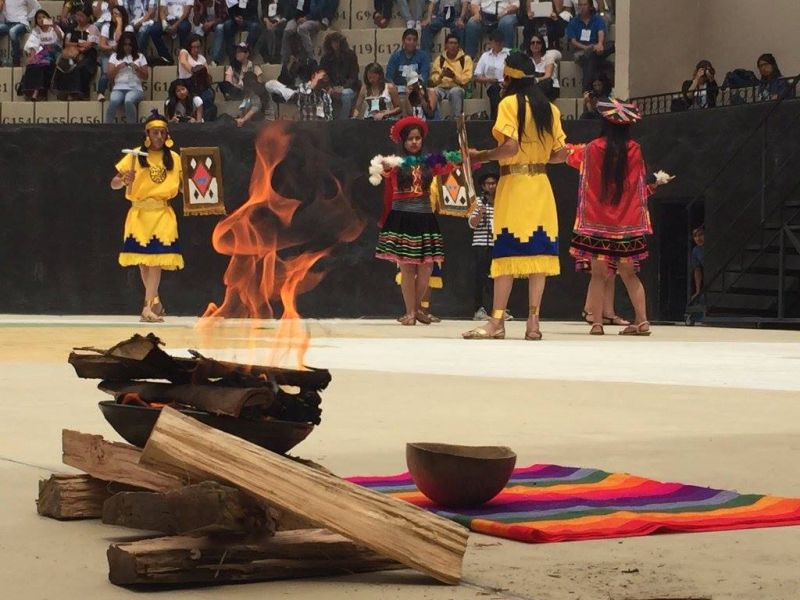 A Festival for Peace concluded United World Week in Ecuador. It was a veritable expo of fraternal actions promoted by the young people of the Focolare Movement. The account of Francesco Ricciardi from the international delegation that travelled the roads of Ecuador in an experience that powerfully brought out the communitarian vocation of the South American continent. “Traditional and modern musical instruments joined together in giving life to a real feast. Young people from Africa, Asia, Europe and the Americas took to the stage. The whole world is in Quito today!” “Even from amidst last week’s destruction, we saw a chain of generosity and solidarity emerge,” Juan Carlos reported. Many concrete experiences of after the earthquake were presented on the stage. Jesús recounts: “When we saw the first pictures, we realized the serious extent of the damages. With several friends we began to organize a collection of basic necessities. We worked from morning until the middle of the night, for love of our brothers and sisters.” Natalia continues: “We focused on areas that were devastated by the earthquake, trying to respond to the cry of suffering. At first it wasn’t clear how we could be of any help. Then I realized that I could love by listening and taking on the pain of the people I met.” David says: “I saw open hands that didn’t hesitate for a single second to give: food, water, medicine and money; hands that didn’t have anything to give, but pitched in to help. I saw an Ecuador shattered by desperation, thirst and fear. But I saw faces of joy, satisfaction and hope at receiving such selfless assistance. I worked beside people who left everything behind: the job, school and even their own family to help people who had lost everything. I got a close up look at the goodness of the Ecuadorians and others.”
A Festival for Peace concluded United World Week in Ecuador. It was a veritable expo of fraternal actions promoted by the young people of the Focolare Movement. The account of Francesco Ricciardi from the international delegation that travelled the roads of Ecuador in an experience that powerfully brought out the communitarian vocation of the South American continent. “Traditional and modern musical instruments joined together in giving life to a real feast. Young people from Africa, Asia, Europe and the Americas took to the stage. The whole world is in Quito today!” “Even from amidst last week’s destruction, we saw a chain of generosity and solidarity emerge,” Juan Carlos reported. Many concrete experiences of after the earthquake were presented on the stage. Jesús recounts: “When we saw the first pictures, we realized the serious extent of the damages. With several friends we began to organize a collection of basic necessities. We worked from morning until the middle of the night, for love of our brothers and sisters.” Natalia continues: “We focused on areas that were devastated by the earthquake, trying to respond to the cry of suffering. At first it wasn’t clear how we could be of any help. Then I realized that I could love by listening and taking on the pain of the people I met.” David says: “I saw open hands that didn’t hesitate for a single second to give: food, water, medicine and money; hands that didn’t have anything to give, but pitched in to help. I saw an Ecuador shattered by desperation, thirst and fear. But I saw faces of joy, satisfaction and hope at receiving such selfless assistance. I worked beside people who left everything behind: the job, school and even their own family to help people who had lost everything. I got a close up look at the goodness of the Ecuadorians and others.”  Some artistic offerings made the celebration even more pleasant and helped to enhance the testimonies. Melany recounts: “When I began to sing in the university chorus I realized that, to have a place in the chorus my friends hadn’t hesitated to offend and insult others. One day, I decided to share the songs I had written. It was a first step. Since then everything has changed. Others have also begun to share their hidden talents that they are finally able to display without fear! The relationship among us all has very much improved. On May 8, 2015 we put together a concert of Latin American music with the goal of transmitting the value of fraternity.” Lebanese young people Giorgio and Lara, even though immersed in one of the bloodiest wars in history, found the strength to love everyone: “The war in Syria has produced 6.5 million refugees inside the country and 3 million have fled to neighbouring countries. Nevertheless, hundreds of public rallies have been held throughout the Middle East to raise funds and supplies of all sorts, and to give a joint witness as Christians and Muslims that unity is possible. Concerts, feasts and prayer vigils have transformed the feast into hope, hatred into pardon and revenge into peace. So many families with such poor financial resources have taken in Iraqi refugees. In Syria many have said to us: “Love conquers all, even when that seems impossible.” David and Catalina presented the “Peace Schools”, a programme promoted in collaboration with Sophia University Institute: “The objective is to create spaces of formation in the theory and practice of fraternity, strengthening relationships with oneself, others, Creation, objects and with transcendence. Universal brotherhood could create a politics that is at the service of all: an economy based on communion; a balanced ecology: a world that is everyone’s home.” The programme is one of the concrete efforts of the United World Project. The festival of inculturation concluded with Samiy, an indigenous young person from the Kitu Kara community: “We’ve spent a week together in which we have experienced that it is possible to bring fraternity, unity, solidarity and peace into our lives, into our local environments and into our world. Humankind is alive. Our commitment is personal, but we can do it only if we feel that we are part of a community. Today we were witnesses to the beauty and diversity and the richness of the cultures.” The joy was irrepressible. During the final song everyone inside the arena was dancing! Young and old, children and teenagers: everyone dancing for joy. But it was no fleeting joy, but the awareness that we are many, a single people with Love for its banner. And as Lidia and Walter said: “This is no conclusion. This is only the beginning!” Source: Città Nuova online
Some artistic offerings made the celebration even more pleasant and helped to enhance the testimonies. Melany recounts: “When I began to sing in the university chorus I realized that, to have a place in the chorus my friends hadn’t hesitated to offend and insult others. One day, I decided to share the songs I had written. It was a first step. Since then everything has changed. Others have also begun to share their hidden talents that they are finally able to display without fear! The relationship among us all has very much improved. On May 8, 2015 we put together a concert of Latin American music with the goal of transmitting the value of fraternity.” Lebanese young people Giorgio and Lara, even though immersed in one of the bloodiest wars in history, found the strength to love everyone: “The war in Syria has produced 6.5 million refugees inside the country and 3 million have fled to neighbouring countries. Nevertheless, hundreds of public rallies have been held throughout the Middle East to raise funds and supplies of all sorts, and to give a joint witness as Christians and Muslims that unity is possible. Concerts, feasts and prayer vigils have transformed the feast into hope, hatred into pardon and revenge into peace. So many families with such poor financial resources have taken in Iraqi refugees. In Syria many have said to us: “Love conquers all, even when that seems impossible.” David and Catalina presented the “Peace Schools”, a programme promoted in collaboration with Sophia University Institute: “The objective is to create spaces of formation in the theory and practice of fraternity, strengthening relationships with oneself, others, Creation, objects and with transcendence. Universal brotherhood could create a politics that is at the service of all: an economy based on communion; a balanced ecology: a world that is everyone’s home.” The programme is one of the concrete efforts of the United World Project. The festival of inculturation concluded with Samiy, an indigenous young person from the Kitu Kara community: “We’ve spent a week together in which we have experienced that it is possible to bring fraternity, unity, solidarity and peace into our lives, into our local environments and into our world. Humankind is alive. Our commitment is personal, but we can do it only if we feel that we are part of a community. Today we were witnesses to the beauty and diversity and the richness of the cultures.” The joy was irrepressible. During the final song everyone inside the arena was dancing! Young and old, children and teenagers: everyone dancing for joy. But it was no fleeting joy, but the awareness that we are many, a single people with Love for its banner. And as Lidia and Walter said: “This is no conclusion. This is only the beginning!” Source: Città Nuova online
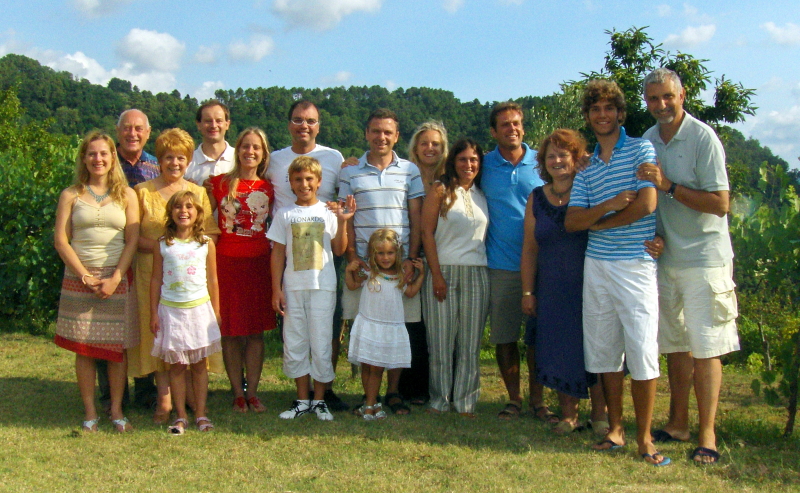
May 11, 2016 | Focolare Worldwide
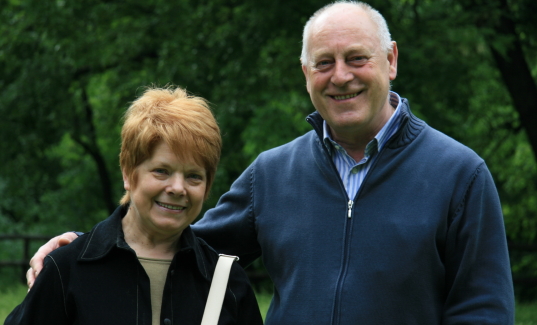 “A family’s history is beset by all types of crises.” This was how Pope Francis introduced his speech on the crisis of couples described in Amoris Laetitia (AL 232 and ff.), thus interpreting the various phases with great realism. These pages seem to recount my story, of when as a child of five, I lost my father and was impoverished by the lack of a future, and when, as a young man, I found in the love of a girl, a breath of new life and hope for happiness and then, as a disillusioned person, I found myself alone. But it is also the story of a community that welcomed and saved me. After Renzo’s nautical studies he embarked on the ships of the Mercantile Marines, and during a leave, met Mariarosa and love bloomed. It was such a great sentiment that could not accept distances. He left his maritime job for her, and his new job led him to live far from their families, friends, and the usual life. The entire universe enfolded the two of them in a dream, and both put their bets on happiness with one another. All went well until when our differences, attractive at the start, slowly started to disturb our harmony. It reached the point that they seemed unacceptable, and made us feel like strangers to one another, in the conviction that we had chosen the wrong person. And in the bitter disappointment we admitted that the dream had ended, along with our marriage. So we split up and I found myself alone in an empty house, giving in to anger and despair.
“A family’s history is beset by all types of crises.” This was how Pope Francis introduced his speech on the crisis of couples described in Amoris Laetitia (AL 232 and ff.), thus interpreting the various phases with great realism. These pages seem to recount my story, of when as a child of five, I lost my father and was impoverished by the lack of a future, and when, as a young man, I found in the love of a girl, a breath of new life and hope for happiness and then, as a disillusioned person, I found myself alone. But it is also the story of a community that welcomed and saved me. After Renzo’s nautical studies he embarked on the ships of the Mercantile Marines, and during a leave, met Mariarosa and love bloomed. It was such a great sentiment that could not accept distances. He left his maritime job for her, and his new job led him to live far from their families, friends, and the usual life. The entire universe enfolded the two of them in a dream, and both put their bets on happiness with one another. All went well until when our differences, attractive at the start, slowly started to disturb our harmony. It reached the point that they seemed unacceptable, and made us feel like strangers to one another, in the conviction that we had chosen the wrong person. And in the bitter disappointment we admitted that the dream had ended, along with our marriage. So we split up and I found myself alone in an empty house, giving in to anger and despair.

1971: As a young couple with the first 5 children

Renzo and Maria Rosa with the whole family

 The topics that have been discussed in these years include: private property and work, the sense of the sacred, suffering and death, the reconciliation process, and communication. In 2015, the School focused on the concept of the human person in African cultures. This time we will move on to the intricacy of family relations, aware of the central role that is assigned to the family in African cultures. “We will explore the concept of matrimony in the Tswana, Zulu, Kikuyo cultures, and in cultural groups from Burkina Faso, the Ivory Coast, Congo, Angola, Nigeria, Uganda, Burundi, Cameroon and Madagascar . . . Two guiding principles have been identified: the man-woman role and the institution of marriage as an alliance, and the transmission of values in the family, which is a topic that came into relief during the School on the concept of the human person. Which values? Sharing, hospitality, participation, respect for the elders who are sources of wisdom, willingness to share immediately when necessary.” What significance does the School of Inculturation have? What is its importance for the encounter amongst African cultures, and amongst these and extra-African cultures? Cameroon focolarino and lawyer, Raphael Takougang described it in this way: “In founding the School of Inculturation during her visit to Kenya in 1992, Chiara Lubich touched the soul of the African people. She showed that she understood Africa more than you might think? Her gesture was not a mere formality but the result of a deep love for the people and their cultures that history has not always acknowledged. For more than twenty years African experts, experts on Holy Scripture and of the charism of unity have been working to highlight the “seeds of the Word that are contained in the many different cultures of the continent: first, to shed light on them for Africans themselves so that they might know and appreciate one another better. Then, it is a helping the African people better known abroad, since up until now they have been little known for much beyond famine and war. The cultural patrimony that is gradually being constituted speaks of the presence of God in the daily life of these peoples and could be a significant contribution to dialogue among the peoples of the world that are more and more becoming a “global village”.
The topics that have been discussed in these years include: private property and work, the sense of the sacred, suffering and death, the reconciliation process, and communication. In 2015, the School focused on the concept of the human person in African cultures. This time we will move on to the intricacy of family relations, aware of the central role that is assigned to the family in African cultures. “We will explore the concept of matrimony in the Tswana, Zulu, Kikuyo cultures, and in cultural groups from Burkina Faso, the Ivory Coast, Congo, Angola, Nigeria, Uganda, Burundi, Cameroon and Madagascar . . . Two guiding principles have been identified: the man-woman role and the institution of marriage as an alliance, and the transmission of values in the family, which is a topic that came into relief during the School on the concept of the human person. Which values? Sharing, hospitality, participation, respect for the elders who are sources of wisdom, willingness to share immediately when necessary.” What significance does the School of Inculturation have? What is its importance for the encounter amongst African cultures, and amongst these and extra-African cultures? Cameroon focolarino and lawyer, Raphael Takougang described it in this way: “In founding the School of Inculturation during her visit to Kenya in 1992, Chiara Lubich touched the soul of the African people. She showed that she understood Africa more than you might think? Her gesture was not a mere formality but the result of a deep love for the people and their cultures that history has not always acknowledged. For more than twenty years African experts, experts on Holy Scripture and of the charism of unity have been working to highlight the “seeds of the Word that are contained in the many different cultures of the continent: first, to shed light on them for Africans themselves so that they might know and appreciate one another better. Then, it is a helping the African people better known abroad, since up until now they have been little known for much beyond famine and war. The cultural patrimony that is gradually being constituted speaks of the presence of God in the daily life of these peoples and could be a significant contribution to dialogue among the peoples of the world that are more and more becoming a “global village”.












